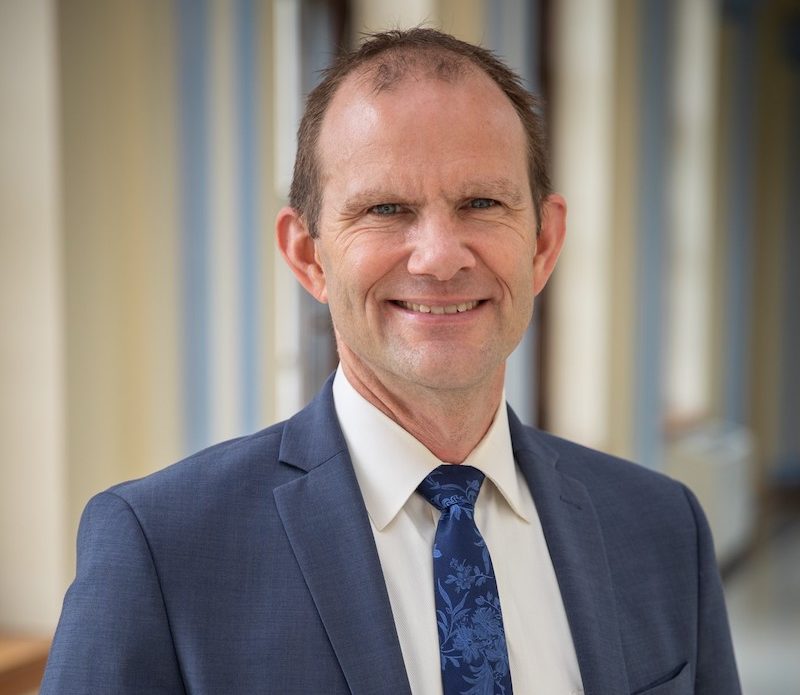Popular media typically portray college life through unappealing caricatures of stuffy, out-of-touch professors and wild drinking parties at frat houses, like in the 1978 movie “Animal House.” For first-generation college students, these depictions may be all they have to gauge what life at college will be like.
“I wasn’t sure what college would be like going into it. I had seen the typical portrayal of college life on TV, but knew I was not going to school to experience it like in the movies,” states Christy Volovnik ’20, who graduated with a B.S. in nutrition and dietetics and a minor in movement science.
Volovnik, like a third of all U.S. college students, was the first member of her family to graduate from college. However, she is in the minority by graduating within four years. According to Inside Higher Ed, a respected academic trade publication, one third of first-gen students drop out of college after three years.
According to Dina Stern, director of financial aid at Immaculata, approximately 21% of the fall 2021 incoming first-time, full-time freshmen undergraduate students identified as first-generation. These students often benefit from having a mentor who can help them navigate the ins and outs of college life and advise them on a professional level. Danielle Kronmuller, D.H.Sc., RDN, LDN and Cecile Adkins, Ed.D., RDN, LDN, faculty members in the nutrition and dietetics programs, became mentors to Volovnik, offering academic and career advice. With Kronmuller’s encouragement and guidance, Volovnik applied for the very competitive post-grad dietetic internship at the University of Maryland Medical Center and was selected. Currently, she is a clinical dietitian at North Mississippi Medical Center in Tupelo.
Growing up in Port Richmond in North Philadelphia, Michael Kalpokas ’21, also a first-generation college student, had his challenges. “I was rough in high school, typical teenage crap,” he admits.
Kalpokas attended high school at Philadelphia Union Academy, connected to the MLS’s Philadelphia Union team. Though he was a heavily recruited player, Kalpokas was the only one from his class who attended a Division III college, which does not offer athletic scholarships. He explains that most D-III schools do not bother to recruit players from Union Academy, because they play at such a high level, and most are interested in pursuing a professional soccer career. However, through a friend connected to Immaculata, Kalpokas invited the men’s soccer coach to watch him play and then toured Immaculata’s campus multiple times.
Kalpokas’ parents were supportive and trusted him to make the best decision about where to attend college. He visited nearly 30 universities before enrolling at Immaculata. He remembers his parents telling him, “The ball’s in your court you’re the one who has to go to school for four years.”
While playing on the Mighty Macs’ soccer team all four years, Kalpokas earned his degree in marketing management with a minor in entrepreneurship. Heidi Harrison, the director of Immaculata’s career and professional development office, guided Kalpokas through the job-hunting process. Even as an alum, he returns to Immaculata to work with Harrison and recently accepted a job at his alma mater as an admissions counselor. He credits Harrison for helping him transition from a college student to a professional.
“My priority wasn’t athletics when searching for a college. I wanted to go to a school that allowed me to be a better person,” Kalpokas says. “I came to Immaculata because I knew this school would allow me to grow as a human being and be my best self, and that’s exactly what it did.”
Although growing as a person is one benefit of attending college, keeping up with classes is crucial. Many students, especially first-generation students, worry about failing and disappointing their parents. To reduce these concerns, exercise science major Ivan Zavala-Zavala ’25 focuses primarily on his academics, while also participating in cross-country.
As the first person in his family to attend college, Zavala-Zavala admits that he feels a lot of pressure. “My parents have invested a lot in my education and have worked extremely hard to get me to this point, and I obviously don’t want to let them down,” he says. When he feels stressed, his father reminds him that all he needs to focus on are his classes. His parents provide gas money for him as a commuter student, prepare his meals and support him so he can spend time studying.
“When I get my degree four years from now, I want [my parents] to know that it wasn’t just me that got the degree. This is also theirs. They are also the reason why I succeed,” he states. He adds that his parents are the ones doing the hard work so that he doesn’t have to worry about anything. “All I have to do is show up for class,” he jokes.
As the oldest child in a family who immigrated to the U.S. from Mexico, Elizabeth Gonzalez-Hernandez ’23 learned to do things for herself. That included applying to colleges, completing financial aid forms, touring campuses and deciding what college to attend.
“I’m happy I got to learn,” she states. “Now I can help the rest of my siblings and at least teach them what I know. They won’t be as clueless as I was going into college.”
Getting an education means a lot to Gonzalez-Hernandez and her family. “My dad does 100% physical work, always working outside from sunrise to sunset,” she explains. “On really hot days he’s working outside while I sit in school, in the AC. He always told me to study hard, so I didn’t have to work like he did.”
If first-generation college students need a role model, they don’t have to look further than Marisa Pereyra, Ph.D., professor of Spanish at Immaculata University. Growing up in Argentina, Pereyra was the first person in her family to earn an undergraduate degree, which she did while holding down a full-time job. When she moved to the U.S., she continued her education, receiving a master’s degree in Hispanic studies and a doctoral degree in Latin American literature.
Pereyra shares her educational experience to provide tips on how to be successful in college. “Being intelligent is not the only requirement; you need self-discipline and the ability to handle studies, family, friends and work in a wise manner,” Pereyra tells first-generation students. She adds that they are usually highly motivated, very thankful for the opportunity to study and aware of the example they are setting for younger brothers and sisters. Pereyra is a perfect example of just how far first-generation students can go and how much they can achieve.
Inside Higher Ed says 91% of first-gen students are sure attending college was the right call. Aside from personal achievement, first-generation college students are also solidifying their future financial security. Surveys conducted for the U.S. Bureau of Labor Statistics (BLS) overwhelmingly highlight the importance of earning an undergraduate degree. The BLS sums up the value of education best by stating, “the more you learn, the more you earn.”
For Claudia Ortiz Ortiz ’25, who is from Mexico, getting into college was like telling the world that her parents didn’ leave everything behind for nothing. “It means that I am actually going places and making my family proud,” she adds.





